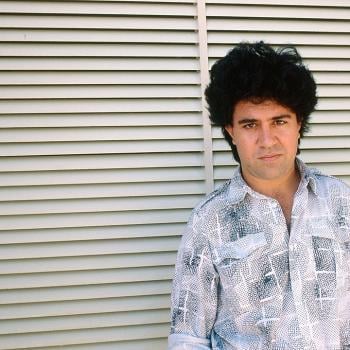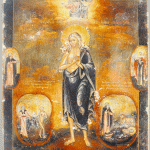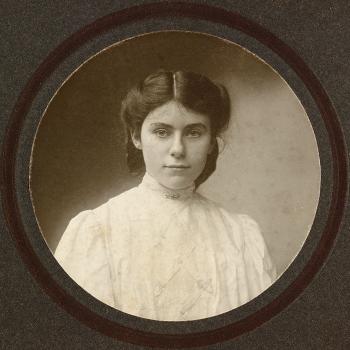
Chloe Vroman was a remarkable teacher who was years ahead of her time. Back when most high school English teachers were diagramming sentences and drilling parts of speech, Mrs. Vroman was teaching us to write by having us write.
On the first day of class she announced, “We’re not going to play the typical school game in which I assign a topic, you write a paper, and then I bleed all over it with my red pen and pass it back with a grade. That’s not how real writers write.”
And rumor whispered that she was a real writer.
Writing for a National Audience
“I am not your audience,” Mrs. Vroman would say over and over. “Your audience is out there. I am just helping you get ready to submit your writing for publication.”
And submit we did. We submitted to magazines, newspapers, and every writing contest Mrs. Vroman ever heard about.
I remember one day when Mrs. Vroman came into class and said, “Guideposts magazine is sponsoring a youth writing contest, and I think some of you should consider entering.”
I had seen the little inspirational magazine in the waiting room at my doctor’s office and had read some articles in it, but I hesitated at the thought of a national contest. I didn’t mind entering the PTA writing contest, because everyone who submitted received a doughnut. I didn’t mind sending in my patriotic essay for the local freedom festival contest, because everyone who submitted got some free tickets to the carnival.
But entering a national contest? I decided to pass. Everyone in our class must have felt the same I did; no one entered. When Mrs. Vroman found out, she was so upset she decreed that entering the contest was no longer optional.
“Now it is a requirement!” she announced. “Those who don’t submit a story will not get a grade out of my class and will not graduate from high school!”
I didn’t even know if a teacher could do something like that, but I wasn’t going to wait around to find out. That weekend I wrote my story, which my mom helped me edit, and sent it off to Guideposts.
Living the Values You Write About
A few months later I received a letter informing me that I had placed in the top 10 for the contest. I took the letter to school and showed it to Mrs. Vroman, who screamed, “You’re in the top ten!”
I said, “There were probably only eleven entries, and they were probably all from our class because you forced everyone to enter!”
“No Brad,” she assured, “this is a big deal.”
Mrs. Vroman rushed off to call the offices of Guideposts in New York City. When she returned, she reported there had been thousands of entries from across the country, and I really was in the top ten! Wow!
Mrs. Vroman said that the senior editor, Van Varner, was planning a trip around the country to personally visit all the finalists.
It was kind of exciting when Mr. Varner showed up in my hometown. He met my family and Mrs. Vroman. I got to eat lunch with him and the principal. I even got my picture in the newspaper.
As I drove Mr. Varner around, he was full of questions. He asked about my community and school. He asked me about my family and our beliefs. He asked about how I wrote my story.
In return, I asked him a few questions of my own, like who would be judging the contest.
“Have you ever heard of Catherine Marshall or Corrie Ten Boom?” he asked. I hadn’t.
I cringe now when I think back on the moment. How did I not recognize Catherine Marshall, the best-selling author of the book Christy? How had I not heard of Corrie Ten Boom, who wrote The Hiding Place based on her own horrific experiences in a Nazi concentration camp during World War II? Today I certainly know who these amazing women are, and I feel honored to think that these authors read—and liked—my little story.
Before Mr. Varner left town to meet the other nine finalists, he asked, “Brad, do you know why I came to visit you?” I was stumped.
Mr. Varner continued, “Guideposts is no ordinary magazine. It is a Christian magazine based on Christian values. I needed to make sure that the story you submitted was not plagiarized. But more important, I needed to make sure that you as an author are really trying to live the values espoused by the magazine.”
Mr. Varner went on, “You see, Brad, anyone can write a story about Christian values. It’s a whole different thing to live the values you write about.”
I agreed. It was easy to see how awkward it would be to give me an award and then have me end up in some big scandal, but I didn’t know the whole visit was a test. I knew I had not plagiarized the story, but the second question was a more complicated one.
Was I consistently living the way I claimed I believed?
Mrs. Vroman had forced this high school senior to write a story. Now Mr. Varner had forced this high school senior into a moment of honest introspection.
I would soon be graduating and starting college. Was I going to continue to live the way I had been taught, even when parents and teachers were not there? Were Christian values things I lived or just things I wrote stories about?
A Powerful Telegram and a Valuable Lesson
Not long after Mr. Varner’s visit, I received a telegram—that’s right, a telegram. I tell teenagers today that a telegram was an early—and very expensive—text message.
Dr. Norman Vincent Peale (now that name I recognized), founder of Guideposts and author of The Power of Positive Thinking, wrote me my own personal, powerful, positive telegram: I had won first place in the contest.
My story would be published in the May issue of the magazine, and my picture would be on the cover. My story would be picked up by news syndicates worldwide and translated into other languages! I had won a $6,000 scholarship.
With my very expensive text message in hand, I rushed off to find my parents and tell them the good news. I also wanted to find Mrs. Vroman to thank her. After all, this was her fault!
Perhaps more important, I knew I needed to thank Mr. Varner for reminding me that values should not just be talked about but lived. Anyone can write a story filled with characters, but it takes courage to live a life filled with character.
Anyone can write a story and portray himself in an honorable light, but it takes true integrity to live honorably in the light—not just on Sunday, but seven days a week.
Excerpt from "The 7-day Christian" by Brad Wilcox (Ensign Peak, 2014).
12/8/2021 3:41:07 PM





